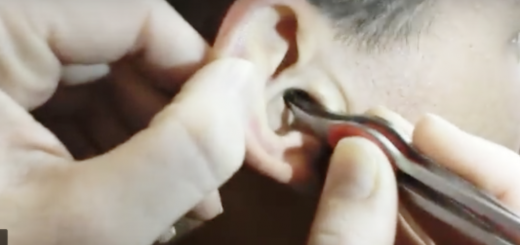That evening, Mr. Weber and I planned our defense. “Renate, we need our own psychiatric evaluation. Dr. Moore, an expert in mental capacity, can confirm your competence.”
“What if they’ve bribed the judge?” I asked. “What if they’ve decided I’m incompetent?”
“The legal system isn’t perfect, but it’s not completely corrupt. We have solid evidence of your competence and their financial motivations.”
The next day, I met Dr. Moore, a kind but astute woman in her fifties. “Mrs. Richter, I’ll ask questions and tests to assess your mental capacity. Answer honestly.”
For two hours, she tested my memory, reasoning, financial understanding, and emotional health with cognitive and logical problems. “Mrs. Richter,” she said, “your results are well above average for your age. Your cognitive function is excellent.”
“Why do you think my family is doing this?” I asked.
“Based on your story and documents, this is a classic case of elder financial exploitation, unfortunately common.”
I left feeling validated but sad—the confirmation of my health was a relief, but the lawsuit’s necessity was painful. That afternoon, Eleanor organized an emergency garden club meeting. My friends were outraged about the lawsuit.
“Renate,” Maria said, “we’ll testify for you. We’ve seen you for weeks—anyone can see you’re doing great.”
“Better than great,” Cynthia added. “You’re clearer and stronger than many forty-year-old women I know.”
Elfrida took my hands. “Renate, greedy children have tried to declare parents insane for generations. But you have documentation, legal support, and friends to testify for you.”
Her words gave me hope—I wasn’t alone. “The saddest thing,” I said, “is that Max and Lena are destroying any chance of reconciliation for money. Even if I forgave them, there’s no going back.”
“Maybe that’s for the best,” Cynthia replied. “Now you know who they are, and you can act accordingly.”
That night, I cried—not from sadness, but grief for the son I thought I had, the dream of a loving family, the illusion of reciprocated love. But a new determination emerged—an iron resolve to protect my dignity and freedom. The war had begun, and I was ready to fight.
The trial came three weeks later. I wore my best black suit, looking in the mirror with newfound determination. Today judged not just my mental capacity but my dignity, my right to live free from abuse, my value beyond my bank account.
Mr. Weber reviewed our strategy at 7:00 a.m. “Renate, the burden of proof is on them to prove incompetence. We just show you’re not. Judge Miller is fair and dedicated to elderly rights.”
We arrived at the courthouse at 9:00 a.m. In the hallway, I saw Max in a new suit and Lena dressed in black, like at a funeral—perhaps of our family relationship. Max avoided my gaze, but Lena’s cold stare confirmed this was a business transaction.
Their lawyer, an elegant older man, portrayed me as a confused woman manipulated by strangers. “Your Honor,” he began, “Mrs. Renate Richter has shown clear mental decline, cutting off family support irrationally, installing unnecessary security systems due to paranoia, and isolating herself under the influence of neighbors and lawyers exploiting her vulnerability.”
His words made my empowerment sound like dementia, my freedom like manipulation. Lena testified first, her Oscar-worthy tears describing my supposed hostility and paranoia. “Renate has been like a second mom,” she said, voice trembling. “Her mental decline is devastating. We want to help her.”
Mr. Weber’s cross-examination exposed cracks. “Mrs. Schuster, when was the last time you called my client without asking for money?”
“Well, we talked about many things,” she stammered.
“A specific date?”
“I don’t remember.”
“Is it true you married without inviting her?”
“It was a small ceremony.”
“Is it true you told her you only invited special people?”
“Those words were taken out of context.”
“What’s the right context to tell your mother-in-law she’s not special?”
She couldn’t answer convincingly. Max’s testimony was painful—my son, swearing to tell the truth while lying about my health. “My mom’s been generous, but lately she’s erratic and irrational. We believe she’s manipulated.”
Mr. Weber dismantled him. “Mr. Richter, how much money have you received from your mother in three years?”
“I don’t know exactly.”
“Does $33,400 sound right?”
“Maybe. She’s always been generous.”
“How many times have you visited without asking for money?”
Silence. “Is it true you broke into her house and checked her documents?”
“We were worried.”
“Is it true you brought a lawyer to pressure her into signing a power of attorney?”
“We wanted to help her finances.”
“Do you, at thirty-five, need your seventy-one-year-old mother to pay your rent?”
Max couldn’t answer with dignity. Mr. Davis testified about my “erratic” behaviors, but admitted he’d never spoken to me directly, his information based on superficial observations. Dr. Lehman claimed my refusal of an evaluation proved mental decline, but Mr. Weber submitted Dr. Moore’s evaluation, refuting his conclusions.
Our turn came. Mr. Green explained how he was tricked into signing a statement. Dr. Moore testified to my excellent mental state with flawless cognitive test results. Mr. Sommer confirmed my rational decisions to cancel transfers.
Eleanor and my garden club friends testified to my clarity and vitality. Finally, I took the stand, feeling seventy-one years of experience and strength. Mr. Weber guided me through my story—the $33,400, the wedding exclusion, the manipulation, the privacy violation, the threats.
“Why did you stop supporting your son and daughter-in-law?” Mr. Weber asked.
“Because I understood it wasn’t love,” I replied clearly. “It was a commercial transaction disguised as family. My money was welcome, but I wasn’t.”
“Do you regret your decision?”
“I only regret it took so long.”
Max’s lawyer tried to make me seem confused, but I answered with precision. When he implied my new friends manipulated me, I explained they were based on mutual respect, not financial interest.
In his closing, Max’s lawyer insisted I was manipulated. Mr. Weber’s rebuttal was devastating: “Your Honor, this isn’t a case of an incompetent woman but a woman who freed herself from financial and emotional abuse. The plaintiffs have no medical evidence of incompetence, only frustration that their income source exercised her right to protect her resources.”
Judge Miller deliberated for two hours that felt like years. “After reviewing the evidence,” he began, “it’s clear Mrs. Renate Richter is in full possession of her mental faculties. Her financial decisions, though painful for her family, are rational and within her rights.”
My heart raced. “The evidence suggests this lawsuit is motivated by financial interest, not concern for Mrs. Richter’s well-being. The court denies the guardianship request.”
I had won—not just the lawsuit, but my freedom, dignity, and right to live free from abuse. Outside, I saw Max and Lena arguing with their lawyer. Lena’s hateful glance and Max’s fleeting look of regret were too late.
That night, Eleanor hosted a celebration with our friends. We toasted to justice, freedom, and sisterhood. “Renate,” Elfrida said, “today you didn’t just win a trial—you won your life.”
She was right. For the first time, my future was mine. I could travel, love, create, live without fear, guilt, or manipulation.
Three months later, I sold my house and moved to a beautiful apartment near the city center. I donated half my money to organizations protecting the elderly from abuse. With the rest, I lived the life I’d always wanted.
I traveled through Europe, took art classes, and joined volunteer groups. I never heard from Max and Lena again. I learned they moved to a smaller apartment, and Lena got a job for the first time in years.
Perhaps adversity would teach them what my generosity couldn’t—the value of honest work and independence. Some nights, on my new balcony, I think of the woman I was a year ago—fearful, manipulated, believing I had to buy love. That woman is dead.
In her place is someone who learned a fundamental truth: true love has no price, and freedom is never too expensive. My name is Renate, I’m seventy-two, and I’ve finally learned the most important person to love and protect is myself.























































